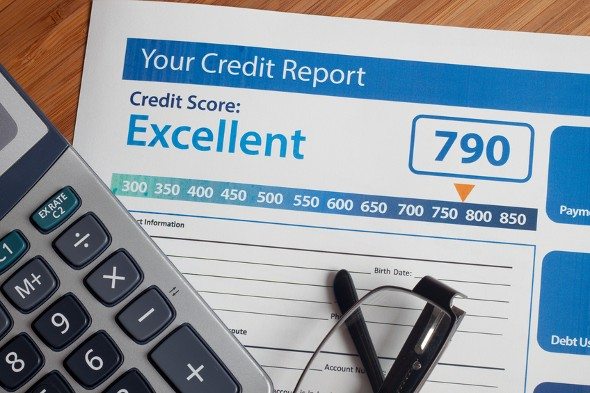Hunting for a new apartment? Don’t be surprised if your landlord says that she needs to check your credit before you sign a lease. In addition to contacting references, landlords often run credit checks to make sure potential tenants are responsible. If you’re curious to know what landlords look for when reviewing credit reports, read on to learn more about their credit-checking process.
Get your free credit score now.
What Landlords Look For
When landlords run credit checks, they’re hoping to learn as much as they can about potential tenants and their financial habits. While they don’t expect tenants to have excellent credit scores in the 750 to 850 range, having a good credit score can make a rental application stand out. In a lender’s eyes, applicants who have good credit can seem more reliable.
Of course, there are other credit-related factors that landlords take into account. Credit checks can reveal whether someone has ever been evicted, sued or has a history of making late payments. Those kinds of issues and others – like having delinquent accounts, foreclosures or bankruptcy filings – can make a potential tenant seem unattractive.
While they take a look at applicants’ credit histories, landlords often focus on recent transactions. Someone who has a lot of open credit accounts is likely using a large percentage of their income to pay off debt. To a landlord, that might be a red flag.
But keep in mind that not all landlords care about the same things when running credit checks. While FICO scores are the most widely used credit scores, some landlords look at other kinds of credit scores like VantageScores.
Related Article: The Average Credit Score: It’s on the Rise
How Landlords Check Credit Reports

Landlords have multiple tools at their disposal when they want to run credit checks. Once they have an applicant’s permission to run a credit check, landlords and property managers can get credit reports and credit scores through tenant screening services. They can also use the services provided by the three credit reporting bureaus (Experian, TransUnion and Equifax).
For example, landlords can check credit reports, credit scores and public records online through Experian Connect. While the service is free for landlords, rental applicants are required to pay a $14.95 credit check fee to give them access to their credit reports for up to 30 days. Certain groups and associations offer credit check services as well.
In order for a landlord or property manager to run a credit check, she’ll need a rental applicant’s name, Social Security number and current address. Applicants can provide copies of their own credit reports and in certain places, landlords are required to accept those reports if they were pulled within the last 30 days.
What Happens When Tenants Have Bad Credit
Even if an applicant has a perfect credit score, there’s no guarantee that he or she will be able to land an apartment, especially if the applicant has ever been convicted of a crime or faced another serious issue in the past. When applicants have bad credit, landlords can be hesitant to rent apartments to them. If someone has a legitimate explanation for why his or her score is so low (like unemployment during an economic downturn), getting an apartment might not be so difficult.
But if someone’s credit is in bad shape because he or she simply failed to pay off credit card debt or made other major mistakes along the way, a landlord might ask for more money upfront. Or the landlord might require the applicant to have a co-signer or a guarantor who can step in if a tenant cannot cover the rent.
If a landlord rejects an applicant for having bad credit, the landlord is legally obligated to notify that applicant. The applicant can then get a copy of the credit report in order to find out why his or her application was turned down.
Related Article: 5 Actions That Won’t Improve Your Credit Score
The Takeaway

Credit scores and credit reports are just two things that landlords consider before approving rental applications. Typically, they run complete backgrounds checks to find out whether applicants have criminal records.
Different landlords focus on different factors when screening tenants. But their end goal is always the same. Landlords want to find reliable tenants who won’t destroy their properties and who will have no trouble paying rent.
Photo credit: ©iStock.com/Jacob Ammentorp Lund, ©iStock.com/danielfela, ©iStock.com/Avatar_023
